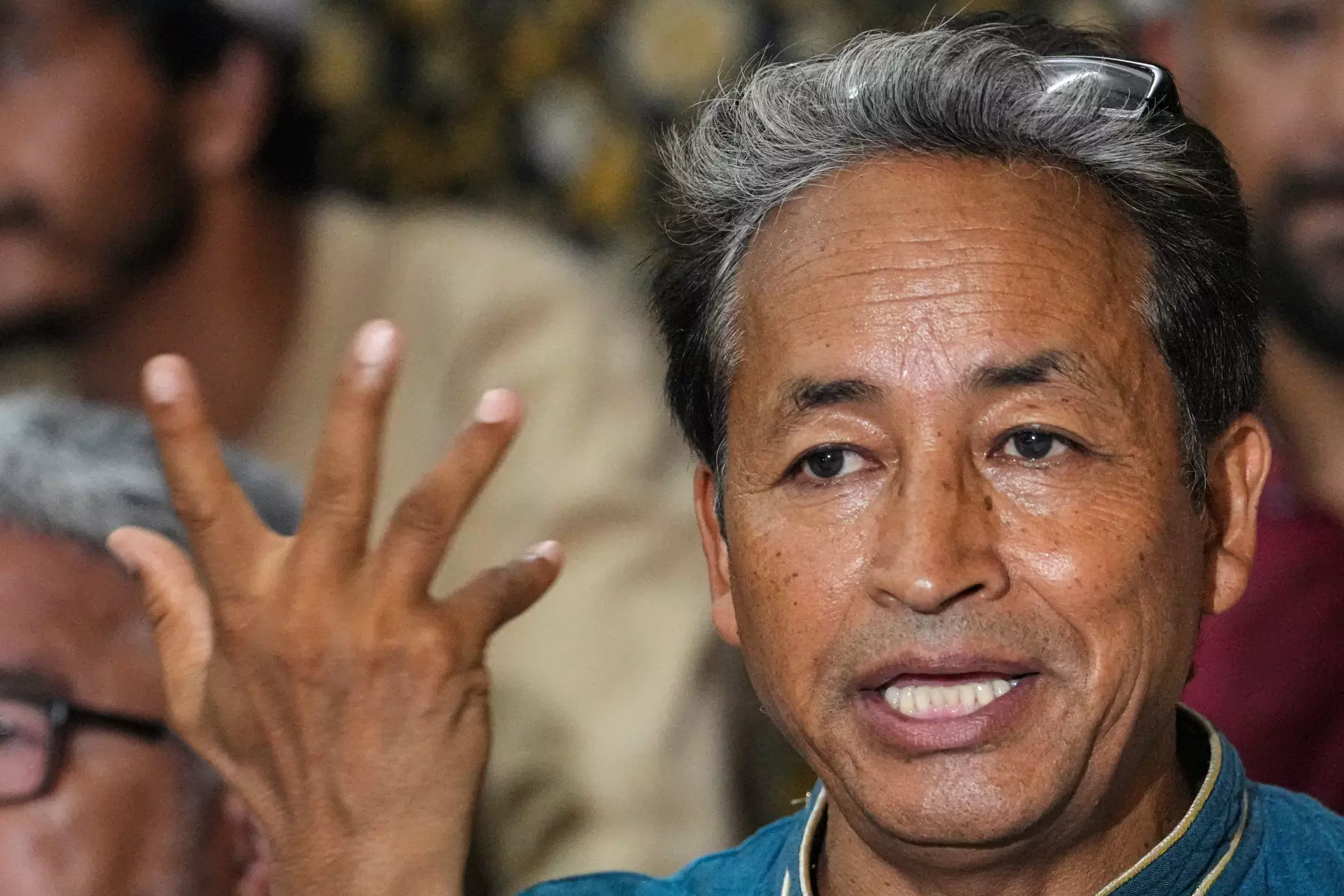Ladakh violence: SC defers hearing as Wangchuk’s wife seeks to amend plea


The Supreme Court on Wednesday (October 15) adjourned the hearing of the plea filed by Sonam Wangchuk’s wife, Gitanjali J Angmo, challenging the activist’s detention after she sought to amend her petition. The case is being heard by the bench of Justices Aravind Kumar and N V Anjaria.
During the hearing, senior advocate Kapil Sibal, appearing for Angmo, submitted that they will apply to amend the petition and challenge the grounds of detention.
Sibal also urged the top court to permit Wangchuk to exchange some notes with his wife. The bench noted the submission of Solicitor General Tushar Mehta that he has no problem with the detainee sharing notes with his wife.
Also Read: Ladakh violence: SC defers hearing on Wangchuk’s detention to Oct 15
Earlier adjournments
The top court on October 6 issued notices to the Centre and the Union Territory of Ladakh. It, however, refused to pass any order on her plea for providing her the grounds of detention and posted the matter for hearing on October 14.
The development comes a day after the Supreme Court adjourned the hearing on the case till October 15. Angmo challenged Wangchuk’s detention under the National Security Act, 1980 (NSA) and has filed a habeas corpus petition seeking his immediate release.
Also Read: SC seeks Centre’s response on Sonam Wangchuk’s NSA detention
The backdrop
Wangchuk was arrested on September 26, shortly after violence erupted in Ladakh during protests demanding statehood and Schedule Six status. The unrest resulted in four fatalities and left around 90 people injured. The administration has accused him of incitement in relation to these protests.
His wife’s petition urged the top court to direct the Ladakh administration to produce him immediately and to allow her access to him. Wangchuk is currently held in a jail in Jodhpur, Rajasthan.
The NSA empowers the Centre and states to detain individuals to prevent them from acting in a manner “prejudicial to the defence of India”. The maximum detention period is 12 months, though it can be revoked earlier.
(With agency inputs)
